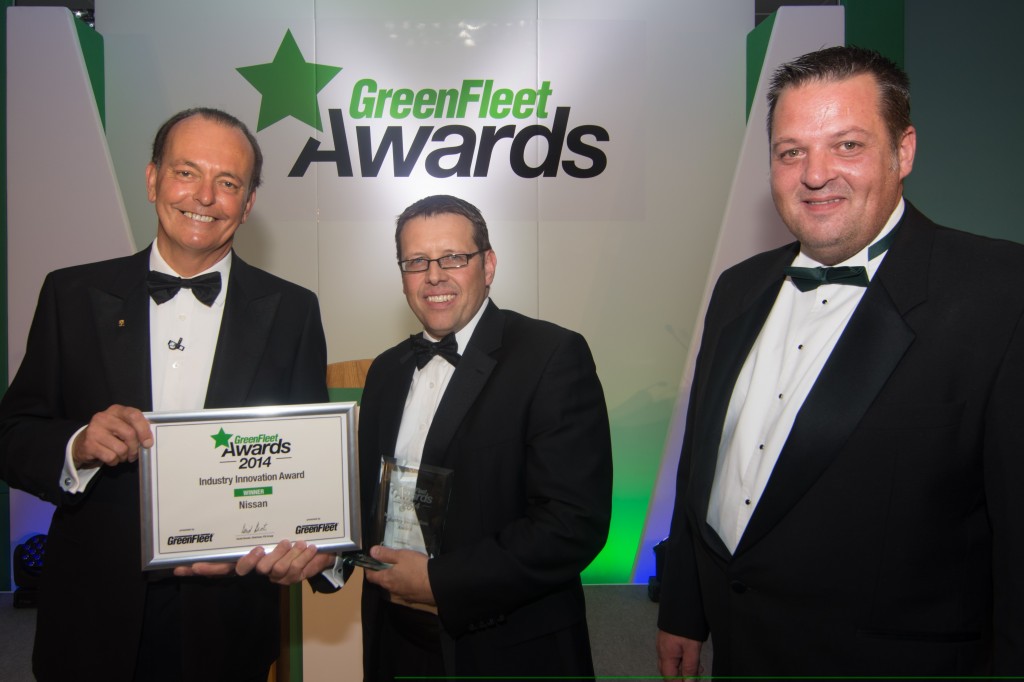
NISSAN, the global market leader in electric vehicles, is celebrating a memorable double win after picking up two of the top honours at the prestigious GreenFleet Awards 2014 in Warwickshire.
The first success came as the trailblazing e-NV200 100 per cent electric van – a vehicle capable of helping fleet van operators slash both carbon emissions and whole-life costs – was named Industry Innovation of the Year.
The evening soon got even better as the brand also received the Outstanding Achievement award, in partnership with British Gas and Hitachi Capital Commercial Vehicle Solutions, for its hugely successful tri-party pilot of the e-NV200 on the British Gas fleet.
Presenting the award for Industry Innovation, the GreenFleet judges noted the ‘rarely-seen levels of anticipation’ that had surrounded the launch of the e-NV200 and said the model would lead a revolution in UK fleets.
Colin Boyton, Sales and Marketing Manager at GreenFleet Events, said: “The e-NV200 is a fantastic vehicle and I truly believe it will shape the eCV market from here on.”
The potential to inspire industry-wide change was also the deciding factor in the judges’ decision in the Outstanding Achievement award.
The three-way partnership project saw British Gas pilot 28 Nissan e-NV200 vans throughout the winter to determine the future viability of 100% electric vehicle technology as part of its 13,000 home service vans fleet. The project was a huge success and led to British Gas placing an order for 100 vehicles.
Colin said: “This project stands out from the crowd and is exactly what the fleet sector needed, in terms of proving EV viability. We hope that in awarding the project this accolade others will sit up and take notice, and if they achieve a fraction of what has been achieved here, it will be all the more worthwhile.”
Collecting Nissan’s honours from awards host Quentin Willson, Nissan Motor GB Corporate Sales Director Barry Beeston said: “We are absolutely delighted to see the e-NV200 being honoured in this way.
“The e-NV200 is a model with the potential to transform fleets, with running costs of just two pence per mile contributing to significantly reduced whole-life costs, not to mention the environmental benefits.”



